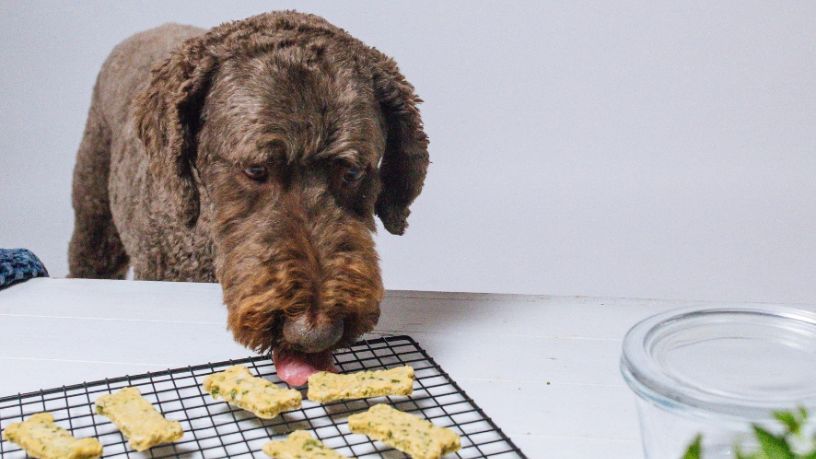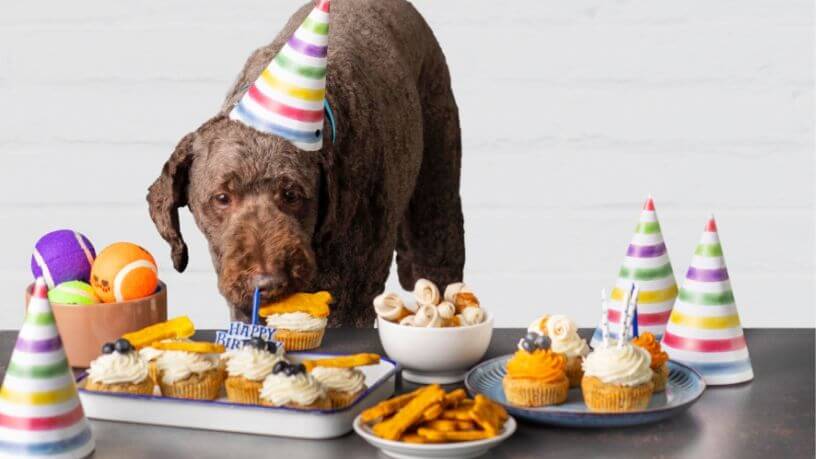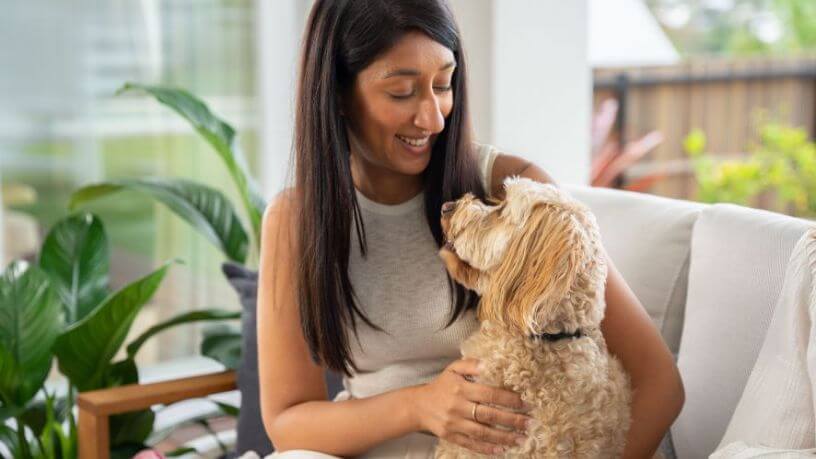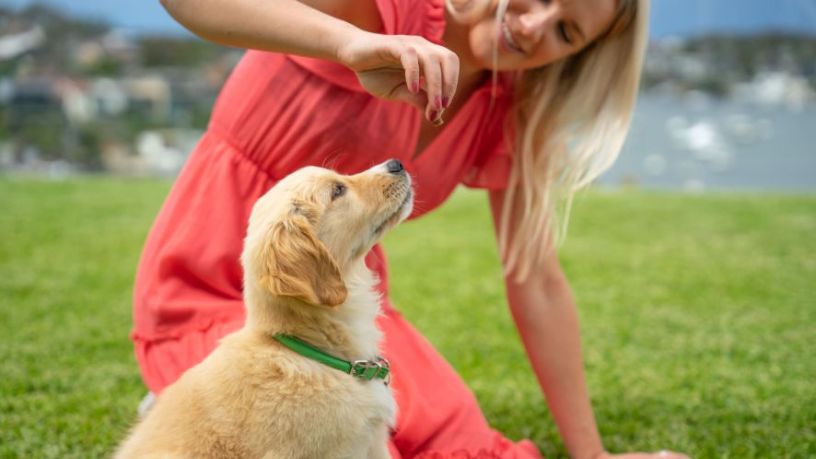Chewing, nipping and biting are all normal behaviours for a puppy and should not be punished.
Key takeaways
Distract your puppy with a chew toy or chewy treat when they’re play biting, or simply stop play time and walk away for a few minutes.
Puppies eventually grow out of nipping, but you can help them learn by using these training tips and being consistent
Puppies love to nip at our fingers, toes and anything else they can sink their new teeth into.
Young pups use their mouths to explore the world around them, much like human babies do. But while puppy play biting and nipping is a very normal behaviour, it’s important to train young dogs out of it as early as possible so they don’t get into bad biting habits as they grow older.
Why do puppies bite?
Nipping, chewing and biting are known as ‘mouthing’ and are a normal part of puppy social interaction. But while the behaviours may be normal, a puppy’s sharp teeth can still deliver a painful bite even if there’s no aggression behind it, which is why you need to curb the behaviour early on.
Puppies don’t know how hard they’re biting. This is something they usually learn through interactions with other dogs such as biting their mum or siblings. When they get a yelp or a returned bite, they know they’ve gone too far.
No biting training for puppies
When puppies stop biting will partly depend on their breed and temperament, but you can help with some training. If your puppy bites all the time, try these tips from Australian veterinarian and TV presenter Dr Katrina Warren.
The key to stopping a puppy from nipping is not to ignore the behaviour but use it as a teaching moment.
“As puppies play with other dogs, they respond to yelps from their playmates,” says Dr Warren.
“The noise signals a stop in play and the pup learns to bite more softly next time. The best way to train a puppy not to bite is to end play time immediately when it happens.”
If your pup starts play biting, say “ouch”, or make a soft yelping sound to let them know you are hurt, and that play is stopping. Then calmly move away from them, ending the game immediately. Your puppy will learn that when it nips or bites, fun time with you ends. Give your puppy a couple of minutes of quiet time before resuming play.
Distraction is another good training technique, says Dr Warren.
“As soon as your pup starts biting, give them something else to do. Try asking them to sit, lie down, or perform another trick you’ve been working on together.”
You can also train your pup by redirecting the biting to something more positive. Encourage your puppy to play bite with a toy, instead of your hand. Good, solid puppy-friendly chew toys are great for this.
“Have a plan of what you are going to do when your puppy is play biting,” says Dr Warren. “Whether it's redirecting their teeth into a toy, giving them something else to do, or asking them to perform another trick, these are all valuable tools to discourage nipping and biting, and encourage a happy, healthy relationship between you and your dog.”
Try these tips:
- If your puppy bites all the time when you’re trying to walk around the house, pause a moment. Puppies love movement and nipping heels is one of their favourite games, so if you stop walking, they’ll likely stop biting. Offer them a fun toy to chew as a distraction before you start moving again.
- Never punish your puppy for play biting. Mouthing behaviour is normal for young dogs and is how puppies play. Don’t get angry or shout. Simply redirect them to a great chew toy or chewable treat.
- Avoid rough play with your puppy as this will encourage more nipping and play biting. Instead, play games where biting is less likely to happen, such as fetch or tug of war.
- Remember: always have a plan for dealing with puppy biting and keep toys and treats (like our chicken chews or banana pup cakes) on hand.

At Bupa, trust is everything
Our health and wellbeing information is regularly reviewed and maintained by a team of healthcare experts, to ensure its relevancy and accuracy. Everyone's health journey is unique and health outcomes vary from person to person.
This content is not a replacement for personalised and specific medical, healthcare, or other professional advice. If you have concerns about your health, see your doctor or other health professional.
You might also like...
Chicken chews for your dog
Looking for a scrumptious homemade treat to keep your dog (and their teeth) busy? Check out our chicken dog chew recipe.
Banana pup cakes
Whether you’re celebrating your dog's milestone moments, or just the joy they bring you every day, spoil your best bud with our scrumptious banana pup cakes!
5 golden rules for dog training
Time to teach your dog the house rules? We’ve put together 5 tips to help make obedience training easy, stimulating, and a lot of fun for your fur-baby!
How to teach a puppy to sit
Teaching your dog to sit is a great way to start their training, so what’s the best way to do it? We talk with Dr Katrina Warren for some top training tips.





